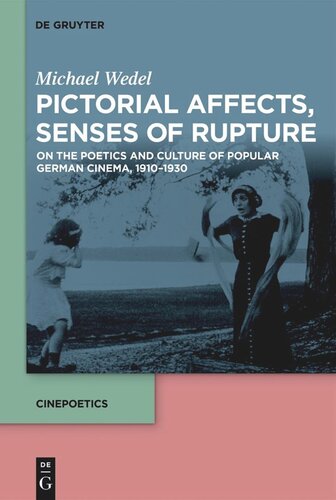

Most ebook files are in PDF format, so you can easily read them using various software such as Foxit Reader or directly on the Google Chrome browser.
Some ebook files are released by publishers in other formats such as .awz, .mobi, .epub, .fb2, etc. You may need to install specific software to read these formats on mobile/PC, such as Calibre.
Please read the tutorial at this link: https://ebookbell.com/faq
We offer FREE conversion to the popular formats you request; however, this may take some time. Therefore, right after payment, please email us, and we will try to provide the service as quickly as possible.
For some exceptional file formats or broken links (if any), please refrain from opening any disputes. Instead, email us first, and we will try to assist within a maximum of 6 hours.
EbookBell Team

4.3
8 reviewsGerman film in the Wilhelmine and Weimar periods is regarded as marked by a strong sense of cultural conservatism and the aspiration to be recognized as an art form. This book takes an alternative approach to the history of German cinema from the emergence of the early feature film to the transition to sound by focusing on the poetics of popular genres such as the disaster film, melodrama, the musical and the war film, exploring their cultural reverberations and modes of audience address.
Based on the assumption that popular cinema contributed immensely to the breakthrough of a modern audiovisual "culture of the senses" in Germany between 1910 and 1930, Pictorial Affects, Senses of Rupture offers close readings of a number of rarely analyzed films, including one of the first cinematic adaptations of the Titanic disaster from 1912 and the German version of All Quiet on the Western Front from 1930. Restoring the films' horizons of historicity by locating them at crucial points of intersection between social, cultural, technological and aesthetic discourses, this book argues for the prominent role popular German cinema’s own forms of discursivity have played within the historical formation of modernity.